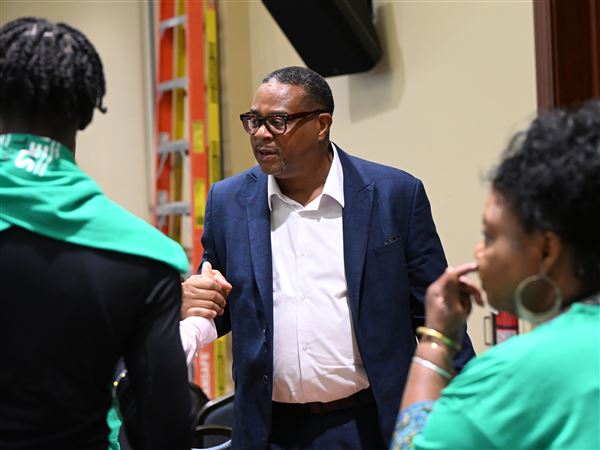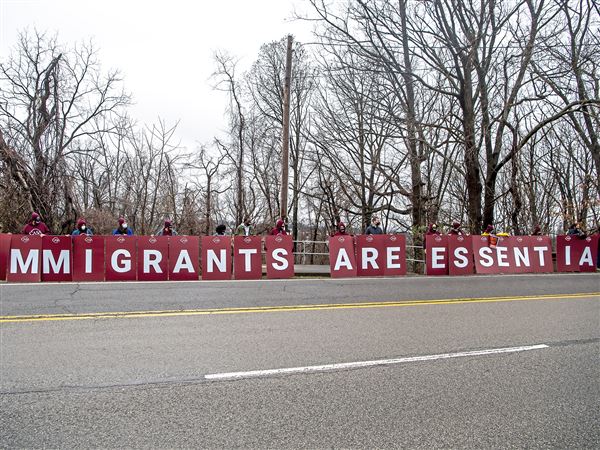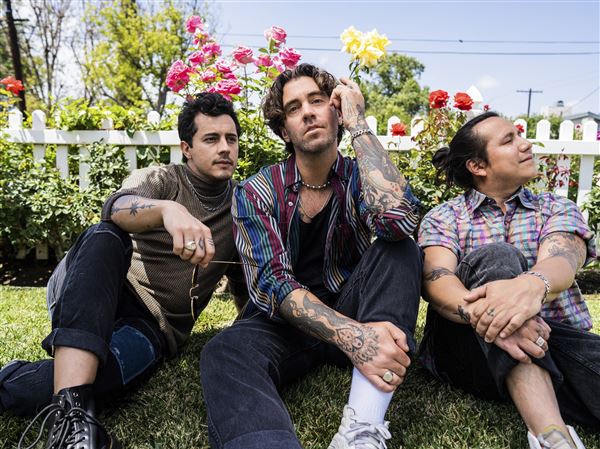By the end of this month, the Supreme Court will render its decision on Fisher v. University of Texas, the latest in a long line of assaults on affirmative action.
I've always thought of myself as a fair person. "Everyone is equal," my parents told me.
The problem is, that's not altogether true. What my parents should have told me is something a little more complicated: "Everyone should be treated equally. But some people just aren't."
Affirmative action, a policy that encourages diversity in colleges and the workplace through preferential treatment for underrepresented minorities, may seem unfair to some.
"I'm really, really, against it," said a classmate at my small Ohio liberal arts college. "It's not fair."
Our communication professor had us play the barometer game. He asked a question -- "Do you agree that race should be a factor in college admissions?" -- and had the class split to either side of the room, depending on whether or not they agreed with the statement.
In a class of 25 students -- most of them white and upper-middle class -- I was one of four who believed that race should be considered. In this unevenly distributed debate, I think everyone felt the temperature rising.
Most of the white students felt they'd earned their places, that they had worked harder and studied more, and they weren't afraid to defend their sometimes offensive positions. On the other side were poorer and minority students, such as me, who were desperate to see people like them represented in higher education. We saw affirmative action as a means to a worthy end.
No minds were changed.
•
"We don't need it," said my conservative, Ronald-Reagan-worshipping friend. "It makes race an issue when it doesn't need to be."
His view is the most dangerous because it is the easiest to fall in line with.
Most reasonable people in this country don't want race to be an issue. And many don't want to believe that a policy like affirmative action is needed, because it's evidence that we haven't come as far as we'd like to believe.
But that type of thinking encourages us to ignore the huge gaps in education, housing, income and overall life chances between white people and people of color. If all of us rode my friend's train of thought, I fear that minorities would crash into a brick wall.
•
Affirmative action has taught me quite a few things about life.
1. We don't live in a meritocracy.
We hear it all the time from parents, politicians, teachers, bosses: If you just work hard, you'll succeed. Which is why I feel nothing but sympathy for the high school kid who did everything right -- 4.0 GPA, student body president, perfect test scores -- and still didn't get into the school of her choice and who might have won admission if not for athletes, children of alumni, geographic diversity or minorities.
But you'd be hard-pressed to find any college admission statement that reads: "We guarantee admission to students who have the highest GPA." The fact is, we're living in a time when Harvard has a 5 percent acceptance rate, so lots of people are getting rejected. Top black and Hispanic students are hard to find because of school segregation, urban decay and less-than-stellar public schools. Some people have to lose out, no matter how hard they work, but not all of them should be people of color. Affirmative action levels out that playing field.
Furthermore, let's not forget that it isn't exactly "meritorious" when someone gets a job or internship because of a family friend. That is a form of affirmative action as well.
2. Diversity is the most important part of the college experience.
According to The Brookings Institution, most U.S. students attend schools in which the majority of their peers are of the same race. I was one of those students. I attended an urban public high school where more than 80 percent of the students were black.
Going to college was a culture shock. More than a couple of my peers admitted to me that they had never had a conversation with a black person. My own roommate lives on a street where not one of his neighbors is a minority.
College will probably be the most racially diverse experience any of us will ever have. With that experience comes the opportunity to learn about a variety of American subcultures, which helps us understand our country and an increasingly interconnected world.
3. Diversity extends beyond race.
At my college, fewer than 20 percent of students are eligible for federal Pell Grants, meaning that institutions of higher learning, especially the elite ones, are not enrolling an impressive number of low-income students, regardless of race.
I support race-conscious admissions, but any college that doesn't recognize that poor whites experience many of the same obstacles to success as poor minorities is, for lack of a better word, stupid.
One of my closest friends is a young woman from rural Ohio. She jokes that her town is the definition of Appalachia, with high teen-pregnancy and low college-matriculation rates. She bested the statistics though and ended up at a great college where she can succeed and contribute to society.
•
Without affirmative action, I'm not sure where I would be today. I didn't have the best opportunities growing up, and I feel that affirmative action, in many ways, righted that for me.
When my grandmother was born in Depression-era Mississippi, there were no black doctors in her county; nationwide, fewer than 1 percent of doctors were black.
Today, you can't step into a hospital without seeing medical professionals of every race. I'm not sure that would be possible without affirmative action. Our country should be proud of that.
First Published: June 1, 2013, 4:00 a.m.















